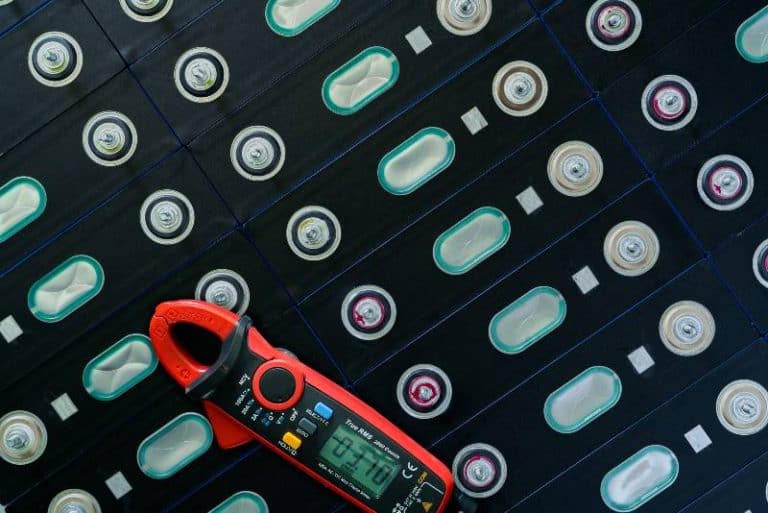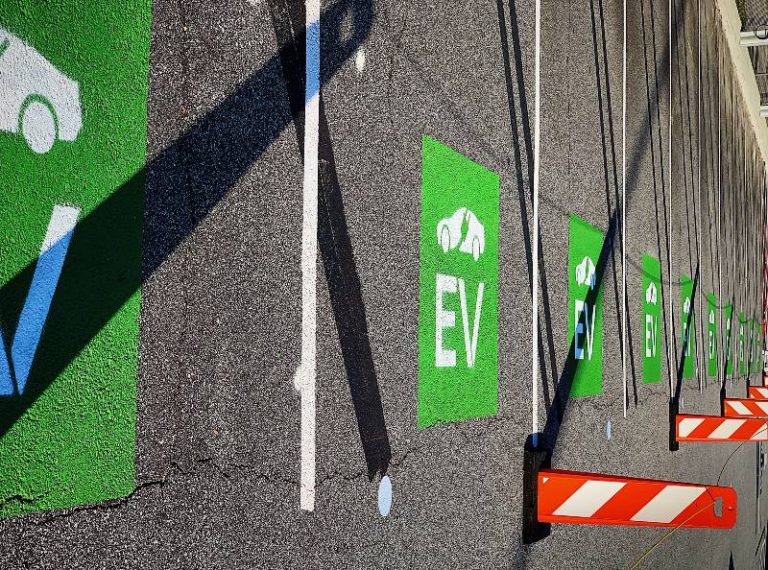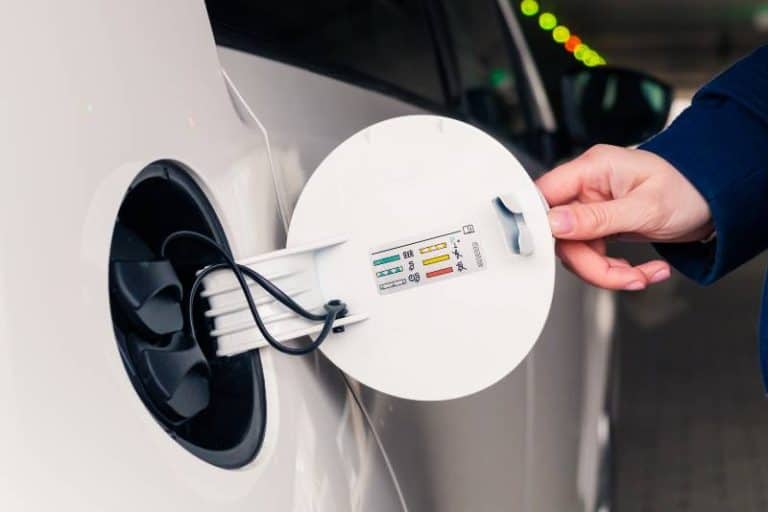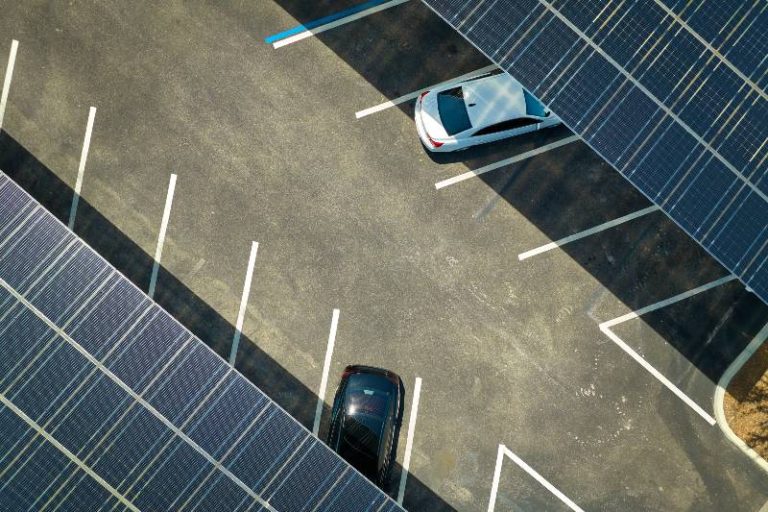Electrify Your Commute: The Benefits of Owning an Electric Car
Electric cars, otherwise known as electric vehicles (EVs), are a type of motor vehicle that is powered by electricity. They run solely on battery power and typically use energy from regenerative braking when slowing or descending to store the energy in the vehicle’s battery for perpetuating their operation. EVs offer various advantages for car owners such as reduced fuel expenses, zero emissions, quieter motor operation, improved acceleration performance, and increased driving range due to advances in battery technology.
Additionally, these vehicles are typically less expensive to maintain due to fewer moving parts compared to traditional gas-powered cars. So, electric cars are quickly becoming an increasingly attractive option for customers who are looking for a forward-thinking, cost-saving solution to their daily transportation needs.
In this blog post, we’ll discuss the benefits of owning an electric car. We’ll also explore some of the myths that surround these vehicles. So if you’re thinking about making the switch to electric, read on!
Electric cars are powered by electricity, which is generated from different sources. In many cases, these cars use clean, renewable energy sources such as solar power. This means that they don’t produce any harmful emissions or pollutants, unlike traditional gas-powered cars.
Key Takeaways
- Electric cars offer a number of advantages over traditional gas-powered vehicles, such as reduced fuel expenses, zero emissions, quieter motor operation, and improved acceleration performance.
- They are typically less expensive to maintain and have longer driving ranges due to advances in battery technology.
- Electric cars are powered by electricity generated from different sources, including clean, renewable energy sources like solar power.
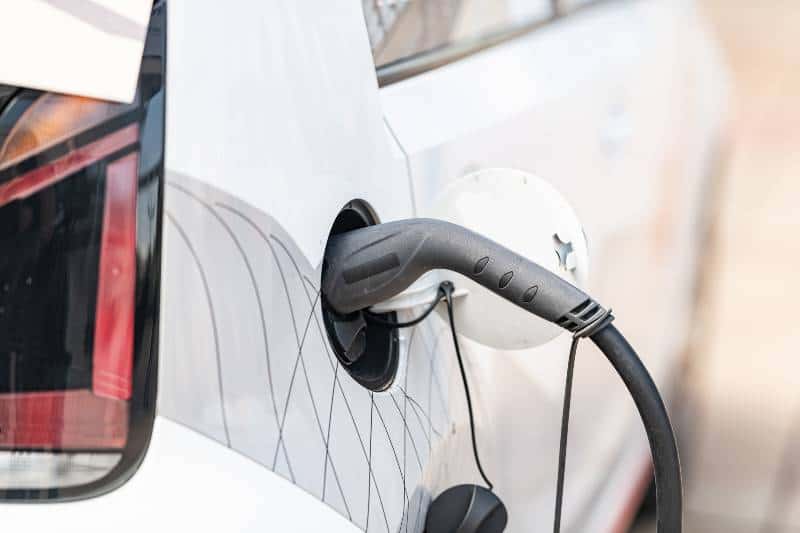
Financial benefits
Lower cost of ownership
The purchase and ownership of battery electric vehicles (EVs) are becoming increasingly attractive due to beneficial state and federal incentives. These incentives can help reduce the cost of a new EV by as much as $13,000, putting EVs within reach for many households. Further cost savings can be achieved through lower operation and maintenance costs that average up to 50 percent lower than those associated with conventional vehicles. Additionally, multiple options are now available when it comes to utility rates for EV charging. Together these developments position EVs as an economically prudent transportation option.
Lower fuel costs
Electric vehicles have long been touted as the future of transportation, and their affordability is a key component. Compared to traditional petrol-powered cars, EVs are more expensive at the point of purchase.
However, they quickly become much more cost-effective in the long run due to their low recharging costs compared to refueling. Recent studies have shown that owning an EV would be financially beneficial for most people after just a couple of years – higher initial costs no longer being a barrier for many EV adopters.
Government incentives
According to the Internal Revenue Service, the concept behind it is not overly complicated. If you buy a new, certified plug-in electric car or fuel cell electric vehicle, you can be eligible for a credit of up to $7,500 under Internal Revenue Code Section 30D. (FCV). As a result of the Inflation Reduction Act of 2022, the guidelines for claiming this credit will be different for automobiles purchased between 2023 and 2032.
Having said all of this, you cannot simply go out and purchase an electric vehicle and then expect Uncle Sam to reduce your tax liability by $7,500 in the month of April. In point of fact, the amount of the tax credit to which you are entitled is determined not only by your personal tax situation but also by various characteristics of the electric car that you buy, such as the location where it was manufactured.
It is essential, first and foremost, to have an understanding of the three little words that the government sneaks in front of the $7,500 credit. These phrases are “may” and “up to.” That is, the federal government may be willing to give you a tax credit of up to $7,500 if you drive an electric vehicle. This credit may appear to be a straightforward flat rate at first look; nevertheless, that is not the case, and we regret to inform you of this.
For instance, if you purchased a Ford F-150 Lightning and had an income tax liability for this year of, say, $3,500, then you would be eligible for a credit equal to that amount from the federal government. If you owe $10,000 in federal income tax, then you would be eligible for the full $7,500 credit even if you owe the government $10,000.
It is essential to take into consideration the fact that any unused amount of the $7,500 cannot be claimed for either a tax refund or a tax credit for the next year.
Since Vice President Biden took office, the White House has submitted two laws with the goal of increasing the adoption of electric vehicles (EVs). One of these measures includes funds for the expansion of the infrastructure used to charge EVs.
It was rapidly brought up as a potential reform at the time that there were reports that the federal tax credit would be extended to $10,000.
The second, more comprehensive bill was included in Biden’s “Build Back Better Act” and subsequent offers to boost the federal tax credit; nevertheless, by the end of 2021, it had not been successful in getting through the Senate.
The revised tax credit was then placed in limbo at the federal level, where it remained until late in the summer of 2022 when the United States Senate announced that it would move forward with a vote on the reform of the electric vehicle tax credit. This came after Senator Joe Manchin (Democrat of West Virginia) finally agreed to include investments to combat climate change.
The bill was passed by the Senate on August 7, 2022, and President Biden signed it into law a week later. Inflation Reduction Act’s reworked “Clean Vehicle Credit” not only extends the length of electric vehicle (EV) tax benefits through the next decade, but it also eliminates the unit threshold that some American automakers have already exhausted, which disqualifies them from receiving the benefits of the EV tax credit in the first place.
Since we are now officially in the year 2023, the new law applies to electric vehicles that were purchased and delivered after the 31st of December in 2022. Caution is advised before reading the following breakdown of the terms of the new Clean Vehicle Credit.
Simply because it is currently being put into effect does not mean that the United States government already has everything in order.
Environmental benefits
Zero emissions
Electric vehicles (EVs) offer a host of environmental benefits. Compared to conventional fuel-powered vehicles, they produce no tailpipe emissions and almost no noise pollution. This can have significant effects on air quality and bird and insect habitats, as well as providing an opportunity for cities to reduce traffic noise.
Additionally, since EVs use electricity rather than burning fuel, their effective operation produces far fewer air pollutant particulates that may cause respiratory problems in vulnerable populations such as young children and the elderly. The reduction of greenhouse gases provided by EVs also has a positive impact on climate change.
Reduced carbon footprint
EVs have a number of advantages for the environment, starting first and foremost with their reduced carbon footprint compared to combustion engines. By transitioning from fossil fuels to the electricity powering EVs, emissions are drastically reduced both in terms of overall operational emissions and local air pollution generated near populated areas.
Improved air quality
EVs not only reduce our carbon footprint but also bring environmental benefits in the form of improved air quality. As EVs do not produce any exhaust or emissions, their use can significantly reduce pollutants in the air and lead to better air quality. This, in turn, has a positive impact on public health and well-being.
Convenience benefits
Here are some of the convenience benefits of EVs:
Reduced dependence on gas stations
When you own an electric car, you don’t have to worry about finding a gas station when the battery runs out. You can just plug it in at home and charge it up, or use a public charging station.
Quiet and smooth operation
Owning an electric car is one of the most convenient things you can do. Electric cars are quiet, smooth, and very easy to use. Electric cars are quiet because they don’t have any internal combustion engines. They’re also smooth because there aren’t any gears or clutches that need to be worked by hand.
No oil changes are needed
Having an electric car means never having to worry about getting your oil changed. Electric cars actually use their own electricity to keep their engines clean and lubricated, so there’s no need for an oil change. When you get a new car, you just plug it in at home or at the office and let it charge up overnight. No more trips to the gas station and no more lines at the auto shop!
If you’re still not convinced, read here on why you should get an electric car! This article will likely convince you that electric cars are the way to go. They’re more efficient and cost-effective than traditional gas-powered cars, produce fewer emissions, and are much better for the environment!
Technological benefits
Improved battery technology
Researchers at Pennsylvania State University have developed a new EV battery design that could enable 10-minute charge times for typical electric vehicles. With the ever-increasing demand for more efficient and quicker charging batteries, Chao-Yang Wang, a co-author of this study, noted, “We don’t have enough domestically manufactured batteries to meet the needs.”
The advent of fast-charging technology has made it possible to reduce the size of electric vehicles’ batteries from 150 kWh to 50 kWh without causing EV drivers to feel range anxiety, making them more economical and efficient.
Smaller, faster-charging batteries will dramatically reduce the cost of batteries and critical raw materials like cobalt, graphite, and lithium—allowing for mass adoption of affordable electric cars, the researchers explained.
Advanced safety features
Electric cars are safer than their gas-powered counterparts. They have fewer moving parts, and they’re more likely to come with advanced safety features like autonomous emergency braking and lane-keeping assistance.
Increased driving range
Back in 2011, the two primary electric vehicles that were on the market, the Mitsubishi iMiEV and the Nissan Leaf, came with maximum realistic ranges of approximately 110 and 135 kilometers, respectively.
Additionally, each one of them cost a little bit more than $60,000 at that time. These comfortably met the average daily driving distance, and many people bought them for just that – nevertheless, these early electric vehicles fell significantly short for persons who drove distances that were not considered to be “normal.”
These early Leafs and iMiEVs were sold for a price that was significantly higher than what it is now possible to pay for electric vehicles that have achievable driving ranges of between 400 and 600 kilometers.
This is partly due to the price of electric vehicle batteries dropping significantly over the past decade, from about $1,200 per kWh in 2010 to approximately $128 per kWh at the present time.
Benefits of Owning An Electric Car FAQs
What are the financial benefits of owning an electric car?
Electric cars are much cheaper to run than petrol or diesel cars. They do not require any fuel of their own, so you will never have to pay for petrol or diesel again.
Are electric cars environmentally friendly?
Electric cars are environmentally friendly. They produce zero tailpipe emissions, so they do not contribute to air pollution.
How do electric cars compare to traditional gasoline-powered cars in terms of convenience?
Image result for How do traditional cars powered by natural gas, and gasoline stack up against their electric counterparts in terms of convenience?
Because electric motors and batteries require significantly less periodic maintenance than gasoline engines do, even hybrid electric vehicles often have reduced costs associated with their upkeep. For example, they do not need to have their oil changed on a regular basis.
What are the technological benefits of owning an electric car?
Electric vehicles don’t require the same level of care as their gasoline-powered counterparts, and they also eliminate the necessity for things like engine oil and changing the oil regularly. Electric vehicles are less likely to contribute to noise pollution because of their quiet operation.
Are there any disadvantages to owning an electric car?
While owning an electric car may have its advantages, there are also a few drawbacks that should be taken into consideration. One of the most problematic issues is finding charging stations. Depending on location and availability, having access to an appropriate charging source for your vehicle can be difficult or inconvenient.
Conclusion
Owning an electric car has never been more accessible or popular. With so many benefits, it’s no wonder that people are making the switch from gas cars to electric ones. And as battery technology continues to improve, we can only expect even more advances in the electric car industry – making them an increasingly attractive option for those looking for a more sustainable and efficient mode of transportation. If you’re curious about making the switch to an electric car, sign up for our newsletter today to receive the latest in Electrik Living news and insights right in your inbox!

